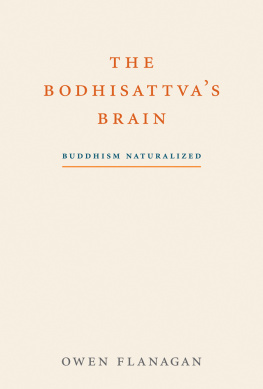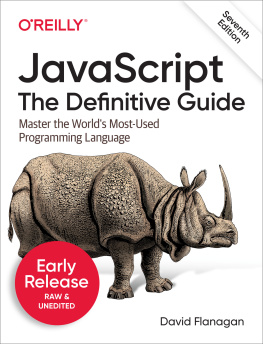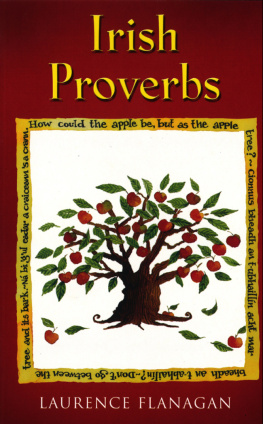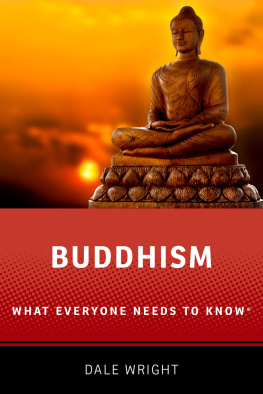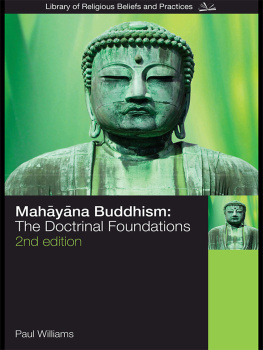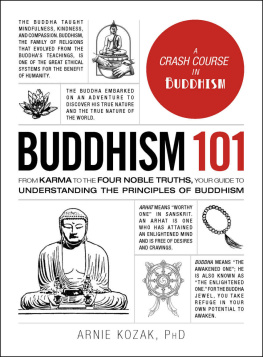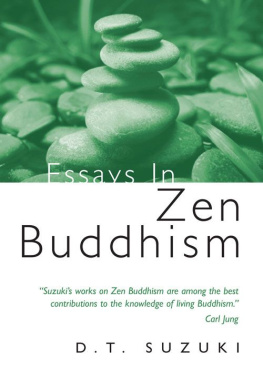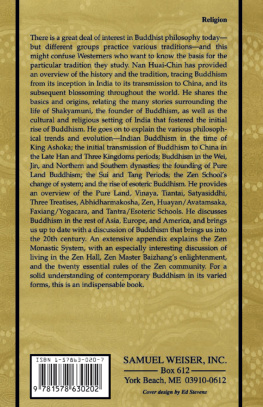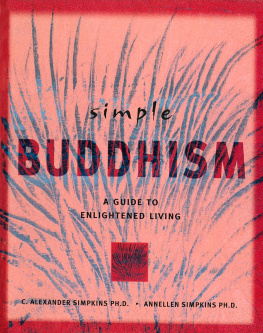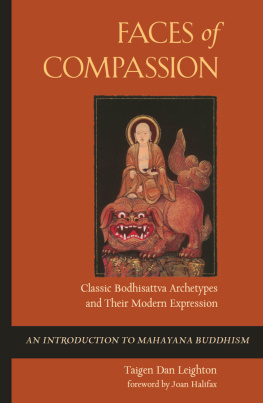The Bodhisattvas Brain
The Bodhisattvas Brain
Buddhism Naturalized
Owen Flanagan
The MIT Press
Cambridge, Massachusetts
London, England
2011 Massachusetts Institute of Technology
All rights reserved. No part of this book may be reproduced in any form by any electronic or mechanical means (including photocopying, recording, or information storage and retrieval) without permission in writing from the publisher.
For information about special quantity discounts, please e-mail .
This book was set in Stone Sans and Stone Serif by the MIT Press.
Library of Congress Cataloging-in-Publication Data
Flanagan, Owen J., 1949
The Bodhisattvas Brain : Buddhism Naturalized / Owen Flanagan.
p. cm.
A Bradford Book.
Includes bibliographical references and index.
ISBN 978-0-262-01604-9 (hardcover : alk. paper)
ISBN 978-0-262-29723-3 (retail e-book)
1. BuddhismPsychology. 2. Buddhist philosophy. I. Title.
BQ4570.P76F48 2011
294.33615dc22
2010053617
10 9 8 7 6 5 4 3 2 1
To Betty Stanton, and the memory of Harry Bradford Stanton, who made comparative neurophilosophy, and much else, possible
Preface
This book is the unintended consequence of an accident. In the summer of 1999, while on a working vacation in Costa Rica finishing Dreaming Souls (2000b), I received an email inviting me to participate in a weeklong discussion the following March in Dharamsala, India, with the 14th Dalai Lama and a handful of scientists and philosophers on the topic of destructive emotions. Prior to the invitation I had some curiosity and a bit of knowledge about Buddhism, as well as a strong conviction of the worth of comparative philosophy, reasoning that either there was or wasnt wisdom about the human condition, and that studying different, and if possible unrelated traditions, would reveal which it was, and if there was any, what it is. The invitation to the Dalai Lamas compound in Dharamsala was, I was told, due to a positive impression my book on the nature of consciousness, Consciousness Reconsidered (1992), specifically its defense of the use of first-person phenomenology in a robust naturalistic theory of consciousness, had made on several of the Dalai Lamas scientific acquaintances (there was no reason then or now to think that the Dalai Lama himself had read any of my work).
The meeting, the Eighth Mind and Life Conference in the spring of 2000, led to a certain unexpected visibility for the participants, including myself, since ideas hatched at the meeting (not by me) led immediately to some widely discussed neuroscientific experiments attempting to determine whether, or possibly to demonstrate that, Buddhist brains revealed their owners to be unusually happy. Because I had been present at the original discussions of whether Buddhismspecifically certain kinds of Buddhist meditation practicesmight produce positive changes in the hearts and minds of practitioners, I was immediately and frequently asked to speak and write about the results of these experiments, which according to the media, more than the scientists involved, showed that Buddhism, uniquely perhaps among the worlds great wisdom traditions, might produce what Aristotle said everyone wishes for, to possess eudaimonia, to be a happy spirit, to flourish. The publication of Daniel Golemans bestselling book about our meetings, Destructive Emotions: A Scientific Dialogue with the Dalai Lama (2003a), helped establish the consensus that someone, somewhere, and pretty recently, had proven that Buddhists were the happiest people in the world.
By 2003, thanks to numerous chances to speak and write on the alleged connection between Buddhism and happiness, and by then serious immersion in the study of Buddhist philosophy (for the record, I am not a Buddhist), the idea for this book was hatched and writing began. Two aspects of my serendipitous situation were especially motivating, despite many interruptions, including an intervening book, The Really Hard Problem: Meaning in a Material World (2007), which contained a chapter engaging the Dalai Lamas views on astrophysics, evolution, justice (karma), and consciousness, a descendant of which is contained in this book as chapter 3. First, as a philosopher who has spent most of my life, not just my career, thinking about the nature of mind, the mindbody problem, how mind, morals, and the meaning of life connect, trying to make the world safe for a fully materialist view of mind, I was intrigued, delighted, and frequently bewildered by having an inside seat at one of those rare moments when science, specifically cognitive science, philosophy, and religion, or something like religion, come together, interact, and intersect. There were widespread discussions, and many published expressions, which continue, of the idea that neuroscience was actually in the process of empirically vindicating the claims of one lived philosophical tradition, namely Buddhism, to yield happiness and flourishing, or something in the vicinity, at a higher rate of return than the other contenders. The hyperbole was (and continues to be) jaw-dropping. I judged the desire expressed and embodied in the idea of vindicating scientifically the claims of a philosophical tradition to be uncommon and thus worth paying close attention. Here were people, Buddhists or folk who judge Buddhism as the correct answer to the question How ought I to be and live?, who are not typically materialists about consciousness, looking at the brain for markers or correlates of a happy and good human life. I set myself this rolea sort of epistemologist-participant-observer from the planets of analytic philosophy and twenty-first-century cognitive science. It was interesting, to say the least, to watch a lived philosophical tradition interested in empirical evidence of its efficacy. I tried to watch the dialectic closely and now offer a report of the lessons learned.
The second motivating feature was this: I have always been a fan of comparative philosophy, long convinced that there are certifiably great non-Western philosophical traditions, such as Confucianism, Taoism, Hinduism, Jainism, and Buddhism, or for that matter extinct Western traditions like Stoicism, Epicureanism, and Cynicism, about which most Westerners, philosophers included, are ignorant. Ive always thought that the study of these traditions might disabuse us of several related blind spots: ethnic chauvinism, the view that non-Western traditions are esoteric in a bad way, for reasons beyond their unfamiliarity; the idea that Religion (with a big R) is inevitable for psychological reasons; and that it is required, true or false, to shore up meaning and morals. I thought this an opportune time to introduce my fellow philosophers, as well as the many scientific naturalists who like me are allergic to hocus pocus, to a suitably deflated secular Buddhism, what I call Buddhism naturalized. Buddhism, like Plato and Aristotles philosophies, is a comprehensive philosophy. It contains a metaphysic, an epistemology, and an ethicsa way of conceiving the human predicament, human nature, and human flourishingthat is deep and not simply superstitious nonsense. Now some parts of Buddhism are superstitious nonsense, so there was also the prospect of asking this question: Is it possible to take an ancient comprehensive philosophy like Buddhism, subtract the hocus pocus, and have a worthwhile philosophy for twenty-first-century scientifically informed secular thinkers? It struck me that among the worlds major spiritual traditions, Buddhism (Id say Taoism and Confucianism as well, but that is a different book) isnt ethically or politically particularly dangerous and is, in its saner forms, philosophically extremely sophisticated, even credible. The history of the West has been and continues to be the story of bloodbaths rooted in part in preposterous faith claims, whereas Buddhism has been kindler and gentler despite being a proselytizing tradition like Christianity and Islam. In his 1966/1975 classic lecture, The Buddhist Attitude to Other Religions, K. N. Jayatilleke writes:
Next page
